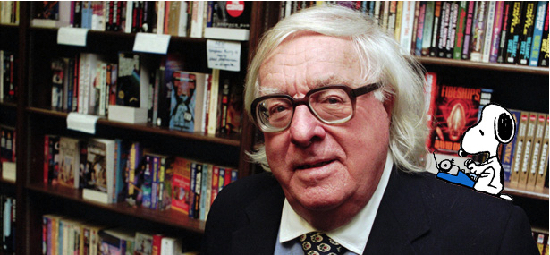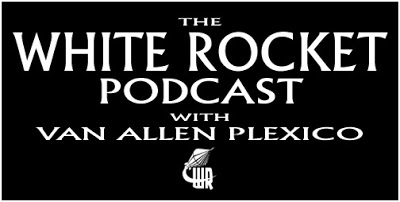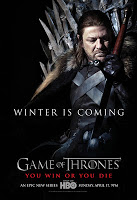Mindy Newell: Are You Typing?
“If you have any young friends who aspire to become writers, the second greatest favor you can do them is to present them with copies of The Elements of Style. The first greatest, of course, is to shoot them now, while they’re happy.” • Dorothy Parker
“I think there are two types of writers, the architects and the gardeners. The architects plan everything ahead of time, like an architect building a house. They know how many rooms are going to be in the house, what kind of roof they’re going to have, where the wires are going to run, what kind of plumbing there’s going to be. They have the whole thing designed and blueprinted out before they even nail the first board up. The gardeners dig a hole, drop in a seed and water it. They kind of know what seed it is, they know if planted a fantasy seed or mystery seed or whatever. But as the plant comes up and they water it, they don’t know how many branches it’s going to have, they find out as it grows. And I’m much more a gardener than an architect.” • George R. R. Martin
“Swoopers write a story quickly, higgledy-piggledy, crinkum-crankum, any which way. Then they go over it again painstakingly, fixing everything that is just plain awful or doesn’t work. Bashers go one sentence at a time, getting it exactly right before they go on to the next one. When they’re done, they’re done.” • Kurt Vonnegut
“Are you typing?” • My mom, when she would call me up in the middle of the day when I was writing for DC and other comics companies.
Who are the people who tell us our stories?
And how do they do it?
Some like to plot everything out, down to the last word, using what I call the “shuffling cards” method in which important plot developments or character moments are written out on index cards, and then mixed and jumbled and rearranged until the writer holds a royal flush. Some writers start at the end of the story and then figure out how it got there. Others get a scene or situation in their head; it could be the middle, it could be the end, it could be the opening paragraph, or somewhere in between. Then that scene or situation plays over and over again, like a needle skipping on a vinyl record in the middle of a song, and. like that skip, doesn’t stop until the writer does something about it.
There are writers who get up in the morning and eat a proper breakfast and take a proper shower and get dressed as if they are going to the office or meeting up with friends and walk to their study or their den and work a proper eight-hour day, writing. There are other writers who get up and squeeze their story-telling in the hours between the time the kids go off to school and the spouse leaves the house to join the 9-to-5 rat race to when it’s time to pick the kids up to take them to their play dates or swim team practice or religious school – not to mention cleaning the house and going grocery shopping and doing the laundry and making dinner for the husband or wife who will soon be home.
Then there are the writers whose beds never get made, their carpet never gets vacuumed, and everyone is picking their clothes out of the laundry hamper because mom or dad is “in the zone.” Or, perhaps, the only time the beds get made and the carpets get vacuumed and the laundry gets done is when the writer is having a particularly bad day and everything that works so beautifully in the brain comes out on paper or the computer screen reads like it was written by some ignorant schmuck of a troll in a Twitter feed.
There are writers who live in their bathrobes and there are writers who can only work in the middle of the night when everyone else in the house is fast asleep. There are writers who live alone but have the TV on as “white noise” as they write. There are writers who play classical orchestral symphonies while they are “at it,” and writers who play specific music that matches rhythms of their words, their characters’ lives, their plot, their story. And there are writers who must shut out all the sounds of the outside world, who must listen only to the noise, the racket, the voice of their individual muse demanding to be heard.
There are other writers who demand feedback, who meet a trusted friend or editor and over lunch or long walks or over a beer or a Guinness or a Scotch, and work out the voices in his or her head, like a neurotic going to see his or her shrink.
There are writers who are incredibly prolific, churning out story after story after story, as if they are not individuals, but simply shells of flesh occupied by hundreds, if not thousands, of “others” who wait on a line that stretches out into infinity until at last they reach the front of the line and it is their turn to tell their yarn. There are writers who have but one tale to tell, and when “the end” is reached, they are no longer writers; they are finished, they are done.
There are writers who drink too much wine and smoke too much tobacco. There are writers who need a doobie or a blunt to get the juices roiling. There are writers who can only write on deadline and writers who are masters of procrastination.
There are writers who get to the gym every day; there are writers who think walking to the stoop to pick up the daily newspaper is exercise. There are writers who withdraw from the world, and there are writers who are at every A-list party and every movie premiere. There are writers who are constantly on the phone to their agents or their publishers’ marketing departments demanding more publicity, there are writers who let their words speak for themselves.
There are writers who would never option their story to Hollywood. There are writers who tell their agents that they won’t finish the story until it is optioned by Hollywood.
There are writers who are braggarts; there are writers who are shy. There are writers who are savvy with the Internet; there are writers who still use pencil and yellow legal pads.
There are writers who write instant classics, there are writers who never see success until long after their bodies have rotted away and the maggots have eaten what’s left.
Those are the people who tell us our stories.
And that’s how they do it.
Editor’s Note: The graphic atop this column is of Ray Bradbury and Snoopy. Yes, we know you knew that, but that person sitting over there did not. It was cribbed from The Atlantic from about three years ago, and it is damned brilliant.





























